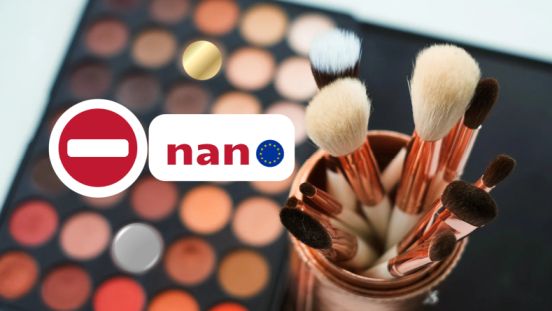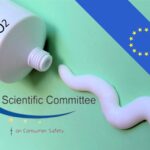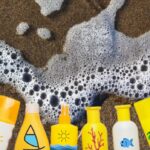
Twelve nanomaterials banned and one restricted in European cosmetics
European regulation 2024/858 has been published, more than two years after the draft submitted to a public consultation and three years after the opinions of the Scientific Committee on Consumer Safety (SCCS). It bans the use of 12 nanomaterials (styrene acrylate copolymer, copper, silver, gold and platinum) and restricts the use of one nanomaterial (hydroxyapatite) in cosmetics. Manufacturers have until 2025 to make the necessary adjustments to product formulation and labeling.
Twelve nanomaterials banned from cosmetics
In response to health concerns highlighted by the Scientific Committee on Consumer Safety (SCCS), the European Commission has issued a regulation banning the use of a total of five groups of twelve nanomaterials in cosmetics:
- styrene/acrylates copolymer, sodium styrene/ acrylates copolymer,
- copper, colloidal copper,
- colloidal silver,
- gold, colloidal gold, gold thioethylamino hyaluronic acid, and acetyl heptapeptide-9 colloidal gold,
- platinum, colloidal platinum, and acetyl tetrapeptide-17 colloidal platinum.
In order to protect human health, these twelve nanomaterials will be included in Annex II of the Cosmetics Regulation, which lists the substances prohibited in cosmetic products.
Cosmetics containing thess substances will no longer be :
- be placed on the European Union market by manufacturers or importers as of February 1, 2025
- be made available by distributors, wholesalers or retailers from November 1, 2025.
Restricted nano hydroxyapatite in toothpastes and mouthwashes
The same regulation restricts the hydroxyapatite nanomaterial (HAP) by adding it to Annex III of the Cosmetics Regulation, which lists substances which cosmetic products must not contain except subject to the restriction laid down. In this case, nano PAH can only be used in toothpastes in concentrations of less than 10%, and in mouthwashes in concentrations of less than 0.465%. It should not be used in applications that may lead to exposure of the end-user’s lungs by inhalation. Only nanomaterials having the following characteristics are allowed:
- [composed of] rod-shaped particles of which at least 95,8 % (in particle number) have an aspect ratio less than 3, and the remaining 4,2 % have an aspect ratio not exceeding 4,9,
- particles are not coated or surface modified.
The same deadlines apply here: cosmetics containing this substance and not complying with these restrictions may no longer be placed on the EU market from February 1, 2025, nor made available from November 1, 2025.
According to the regulation, the length of these periods has been determined considering the SCCS concerns and the potential risk to human health associated to the nanomaterials concerned, as well as the number of cosmetic products concerned.

Nos fiches pour approfondir…
Les autres actus sur le sujet
Les prochains RDV nano

- International conference on metallic nano-objects for experts working in the interdisciplinary field of metallic nanoparticles, with a particular emphasis on nanoparticle synthesis and characterization, plasmonics, optics and photonics, catalysis, biomedicine, electronics, and nanoparticle recycling
- Organizers / Partners: CNRS, Bordeaux University, Bordeaux INP, ICMCB, CRPP, CBMN, ISM
- Website: https://mno2026.sciencesconf.org
- Toxicokinetics: the fate of chemicals in the body” training course:
- the different routes of entry for toxic products
- the importance of toxicokinetics in preventing substance toxicity,
- xenobiotic absorption, distribution, metabolism and elimination
- nanoparticle toxicity
- Organizer: Association Toxicologie Chimie (ATC)
- Date: March 26, 2026
- Speaker: Nicole Proust (Research Engineer, CNRS Honorary Research Director, Palaiseau)
- Website: www.atctoxicologie.fr/…

- E-learning program: a 2-hour awareness-raising session aimed at personnel potentially exposed to nanomaterials at the workplace, heads of laboratories or facilities where nanomaterials are handled, safety coordinators or engineers.
- Organizers: INSTN Grenoble (CEA)
- On the program:
- 1 – Introduction, definition and characteristics of nanomaterials
- 2 – Toxicity of nanomaterials: the state of knowledge
- 3 – Metrology and characterization of nanomaterials
- 4 – Prevention and protection against nanomaterials in the workplace
- 5 – Quiz: assessment of learning outcomes
- The 2-hour course can be viewed for one month from the date of registration.
- Website: https://instn.cea.fr/…risques-lies-aux-nanomateriaux…



